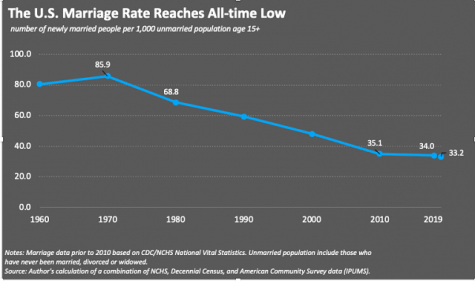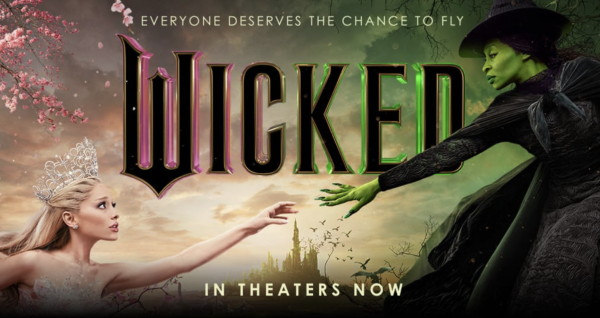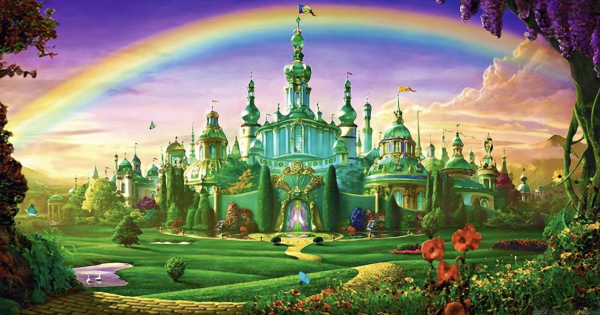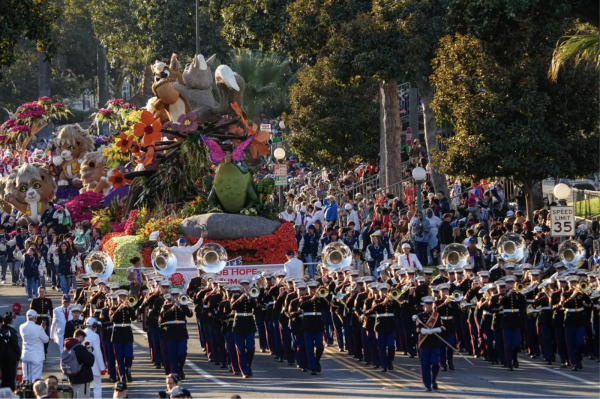Millennial Marriage is Declining and Transforming

Photo courtesy Pointers for Planners
Church bells, veil and white gown, the familiar momentous occasion of the union of two people: marriage. In the earliest civilizations, religious life was different, the food was different, their values were different, but one constant was the notion of marriage. Now, it is an expected part of adulthood and a societal norm, but trends over the past century, especially the most recent decades, have disputed this.
In 2020, the marriage rate in the United States stood at 5.1 per 1,000 people of the population. In 1920, the rate was more than double, at 12 per 1,000 people of the population. The yearly drops have been sharper than ever, but the graph has been moving down at a steady pace for the past 50 years. As shown in the figure, we see a decline starting in the 1970s.

Graph 1:https://ifstudies.org/blog/the-us-divorce-rate-has-hit-a-50-year-low
We can point to a few reasons why there are fewer Mr. and Mrs. each year. First, women’s rights and independence have obviously drastically changed over the decades. It used to be vital for women to get married when they could not easily financially support themselves. Of course, there is still much progress to be made in terms of women’s inequality in the United States, but there are fewer reasons to depend on a spouse, as more gender barriers are broken. “Women’s independence and gender equality is a huge factor in the long-term decline in marriage,” says sociology professor at the University of Maryland, Philip Cohen.
In addition, traditional beliefs about married life and childbearing are becoming less rigid with new generations. Millennials have always strayed away from the common directions of generations in the past, and have been more accepting of other sexual orientations and gender expressions. Now they are reshaping the standards of marriage with those same values. It is a common and now accepted position that people do not feel financially or mentally ready for marriage (around 30 years old), when previous generations decided to settle down. Millennials are choosing to marry later, and a large group is even not expected to marry at all. The concept is developing as outdated, a binding construct where a woman can be treated as property.
While some completely reject it, others are modernizing the expectations. For example, families are having fewer children because both parents work, and both parents have equal responsibilities over raising kids.
Peering into the future as Gen Z grows up, we can expect more divergent trends, as marriage and standards have always gotten less traditional with each coming generation. Some may view it as a tragedy to a beloved tradition, and others as a step in a more modern and less sexist direction. Regardless, the already dwindling rates are inevitably going to continue to disappear quicker than you can say, “I do.”
Sources:
https://www.jec.senate.gov/public/index.cfm/republicans/2020/4/marriage-rate-blog-test

Grade: 12
Years on Staff: 4
Why are you writing for the Flintridge Press?
The Press gives me an opportunity to share my voice and subjects that...








